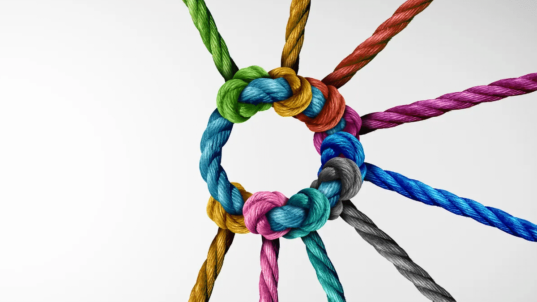While on a recent family vacation, I had the “opportunity” to watch a couple hours of cable TV news/commentary. By which I mean that I lost the coin toss with my spouse over which of us would accompany our over-excited children to the hotel pool, where a steady and loud stream of cable news was provided for our further diversion—as if something else was needed in addition to the garish hotel décor and the over-chlorinated pool and hot tub.
And as I weathered this disquieting media and sensory onslaught from my poolside chair and tried to make sense of the on-air ramblings and various conspiracy theories of the type that I thought (or naively hoped) had last seen prominence in 1954 (thank you again, Joseph N. Welch), I was reminded at some point of the logical fallacy of the false dichotomy or the false choice. This fallacy, which my spouse and I use regularly to great effect in our own arguments over household chores, incorrectly frames the question under discussion as a choice between only two given and mutually exclusive alternatives: true or false, black or white, do the dishes or walk the dog, you’re either with us or against us.
Of course such dualism is often forced and—clearly when applied against me—quite obviously wrong. There is nearly always at least a third option, if not a fourth or fifth or sixth. I could do both: wash the dishes and walk the dog. Or —given my slothful proclivities—more likely do neither.
While further ignoring the clamor from both the TV and my nearly drowning progeny, it also occurred to me that the requirement in IF Discussion process of considering multiple possibilities (commonly 4-8) for a given topic is partly a direct and healthy deterrent to this all too common logical fallacy.
This isn’t to say that avoiding the false choice is necessarily easy—particularly in the heat of an argument. We often want to frame our arguments to force a choice between the option we prefer and some clearly undesirable option or some slippery slope to that undesirable outcome. This can take the form of we either we do it “my way” or we’ll inherently slide into some chaos.
Of course reality—and our fellow citizens (and family members)—just as often have a strong bias for multiple and alternative outcomes. Perhaps the slippery slope will lead to a ski lift to the top of another hill with a better view or perhaps we’re already at the bottom and all the options lead up, or perhaps we’ve got crampons and an ice axe and the whole point is to play on the slippery slope. The point being that we shouldn’t necessarily accept the given options—almost always there are other possibilities.



